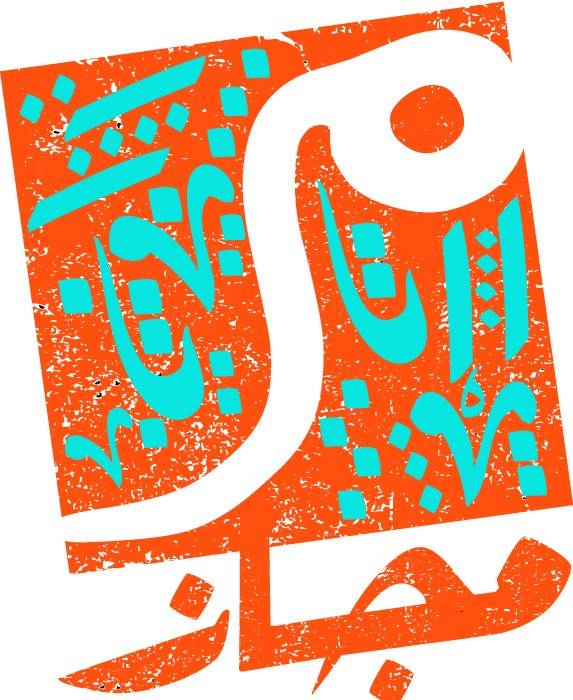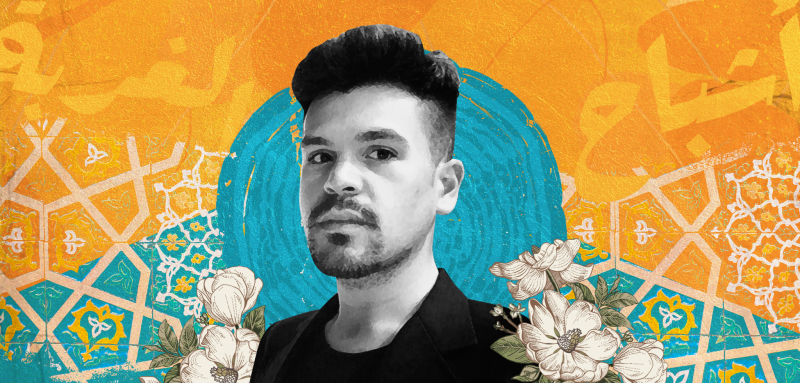 Ghorba ghosts
Ghorba ghosts
Award-winning author Massoud Hayoun’s Ghorba Ghost Story Series is forthcoming from Arab British Darf Publishers. The first novel BUILDING 46 is set in Beijing and is out in May. The second novel Last Night in Brighton is set in Alexandria, Egypt and Brighton Beach, Brooklyn, and it is out in October. Both have Jewish Arab protagonists who are born in America and both are murder mysteries that involve feelings of غربة or strangeness and longing for home.
The novels — available for preorder from the publisher here and on most bookseller sites — are eagerly anticipated by the many people who were inspired by Hayoun’s nonfiction book When We Were Arabs, which blended the biographies of his Jewish Arab North African grandparents, academic research, and political theory to offer a work that helps to inform contemporary understandings of Arab and Arab American identity.
Raseef22 is featuring the first published excerpts of the novels, about which Hayoun has to this point said very little publicly. The Ghorba Ghost novels are already generating some buzz. They have been called “exquisite” by the iconic dissident artist Ai Weiwei, “just splendid” by groundbreaking author Jordy Rosenberg, 'ferociously entertaining' by indie rock star Austra, “massive" by bestselling author Alya Mooro, and “marvelous” by award-winning author Peter Kispert. Celebrated writer and scholar Moustafa Bayoumi says that “Hayoun’s transgressive and transporting gifts are wonderfully on full display.”
The Raseef 22 team caught up with Hayoun to talk about these dazzling, new works and his guest editing for Raseef’s March Ghorba Ghost Story Month.
The Raseef 22 team caught up with Hayoun to talk about his dazzling, new works and his guest editing for Raseef’s March Ghorba Ghost Story Month
This is quite a year — Two novels and a pivot away from nonfiction. What prompted this shift?
I don’t see it as a shift, really. Or at least the continuities between these novels and When We Were Arabs outweigh their differences. I see these novels — particularly the second one — as fictional rejoinders to When We Were Arabs.
Memoir as a core component of the multiple threads in When We Were Arabs allowed me to address things in a way not constrained by academic or journalistic considerations. That allowed me greater range of motion in what I was saying. For me, I use whatever literary form I can to convey my message. It’s always going to be about expediency and saying what I’m trying to say. Fiction worked best, this time.
For me, form or genre — including fiction and nonfiction — are like communism and capitalism. On the surface and as we are told that they exist, they seem to be diametrically opposed, scientifically distinct categories. In the same way that world governments have chosen these ideologies and then charted their own courses, I’ll function under one of these guiding genres, but ultimately, they nourish each other, are inextricably linked, and are entirely meaningless. The story and its mission will decide.
Are these books still about Jewish Arabness?
Yes and no. Yes, they feature characters who live the ideas I describe in When We Were Arabs. But also, no. They are not a manifesto that explains Jewish Arabness and Arabness more broadly, in the way that When We Were Arabs did. I feel myself to have already answered questions about the existence of Jewish Arabs, Arabness, and my own and my family’s belonging to the Arab peoples. I can now build on that work without getting bogged down in explanations. This is a continuation. Take these novels as an escalation.
You have said in interviews that Daida your grandmother was a co-author of When We Were Arabs. Many of your readers very much enjoyed reading about her — especially her experience of Arab womanhood. What do you think her impression would be of these new novels?
This is a very moving question. Daida is still a co-author. How she was is how I am. Any poetry I have in my brain comes from her, because she raised me and was my good friend and a wry wit until she died. The same is true of Oscar, although we lost him when I was a teenager.
Daida in every word of these works. But more concretely, in these books, some of Daida manifests in the fact that we will encounter characters in the Ghorba Ghost novels who are older women who inhabit more roles than mother or matriarch. They are gangsters, amateur sleuths, and vigilantes. They refuse to be made small or irrelevant. That would have made Daida smile, I think.
I used to play a Chinese-Canadian pop song for Daida called 我的歌声里 - You Live in My Song, by Wanting Qu. The words go: 你存在我深深的脑海里/ 我的梦里/ 我的心里/ 我的歌声里 - You live deep in my brainwaves / in my dreams/ in my heart/ in the voice of my song.
Those may sound like sweet words. But insofar as the Ghorba Ghost Story Series is a bit darker than that, it might be an interesting exercise to appreciate what is at once frightening and beautiful about these lyrics. To appreciate what is beautiful about the sensation of being haunted — the scientifically explicable kind of psychological haunting or longing.
Raseef22 is featuring the first published excerpts of Massoud Hayoun’s Ghorba Ghost Story Series, about which Hayoun has to this point said very little publicly
Just after Daida died, I used to have frequent night terrors that have more or less subsided. Still, I have some intense dreams. The other night, I dreamt — and I wrote this dream down — that Daida and I were in my childhood bathroom. She was shaving my arm hair (for whatever reason) and was wearing a surgical mask.
Suddenly, I looked at her and said, “You’re dead!” I can still see her eyes in that dream — the hardness in them. I then apologized to her for her being dead. And she apologized to me for being dead. I turned away from her, and when I looked back, she was gone.
Arabic and Chinese language, among others, play a big role in these novels. Why?
Because of words like ghorba.
English is a beautiful language, without which I’d never be able to say any of these things, but there are things that this language will never convey. It is of course my mission to use whatever word is most fitting in my work, regardless of language, and to decentralize this English that I speak only as a result of my family’s multiple displacements.
I also wanted to share something intimate with the speakers of those languages. Much of these novels were written after the pandemic started. I wanted to share moments of great understanding with people for whom my few foreign-language words will have some resonance.
The second novel is your last. Why?
I can tell you and others why in October, when it comes out.
Let’s talk about the title of the series — Ghorba Ghost — which is also the title of our month-long creative writing series. Why do you call your novels the Ghorba Ghost Story Series?
It’s a new twist on a word and a feeling familiar to many of the people who will read the novels and submit to the creative series — Ghorba. I had hoped with Ghorba Ghost to plant a subversive, little seed in people’s minds.
Ghorba is a powerful word. It describes a phenomenon that is at once universal and human and very particular to the displaced peoples of countries continually devastated by violent occupation and other neocolonial and internal phenomena that make our home societies unliveable. We often talk about ghorba as though it were a wistful, delicate feeling, but it is manifestly political. It is often the result of devastation. And so I juxtapose it with the stuff of haunting and horror when I say Ghorba Ghost
I was also taken with the notion that there are several kinds of haunting — actual ghost stories and fears and memories that play on the mind. And then, separately, I was thinking of the French-language turn of phrase: Errer comme une âme en peine - Wandering like a pained soul. I enjoy the graceful darkness of it.
Any advice for the creative writers submitting pieces for the Raseef Ghorba Ghost month?
Interpret everything — Ghorba Ghost; longing and haunting; poetry, essay, fiction; art — as radically and strangely/ gharib-ly as possible. One young woman submitted a piece on longing for a piece of clothing in a way that is politically actionable and powerful. I very much enjoy it. Jolt me back to life with your writing, please.
Also, I am confident that I will enjoy elements of almost everything I read. If I don’t take your piece, please know that it does not mean that I didn’t enjoy it. It can be for any number of logistical reasons that this was not our moment to collaborate. But that moment will come, and we should see a missed opportunity at this juncture as a challenge to come together again in the future.
Also, I will be handwriting a thank you note to the people who write selected pieces with a few little gifts as tokens of my appreciation.
Raseef22 is a not for profit entity. Our focus is on quality journalism. Every contribution to the NasRaseef membership goes directly towards journalism production. We stand independent, not accepting corporate sponsorships, sponsored content or political funding.
Support our mission to keep Raseef22 available to all readers by clicking here!
Interested in writing with us? Check our pitch process here!





